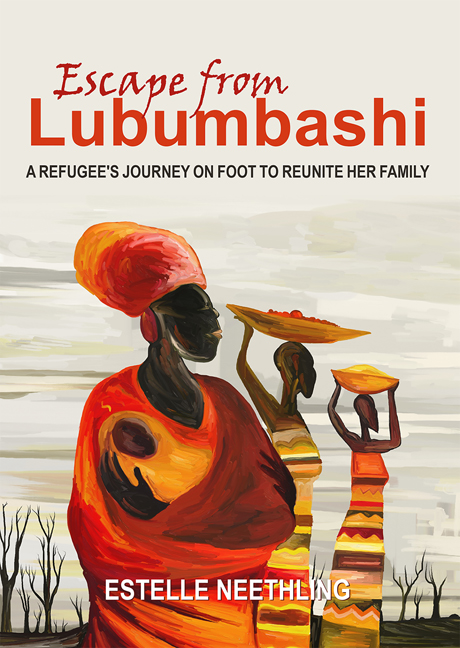7 - A wave of unrest in Zaire
Summary
Storm clouds of political instability and violence kept gathering in the Mpidewu family's area and in the country as a whole. Adolphine declares of that early part of her marriage: “I was in my space and place with Sepano and my little brother Joseph Junior and carrying my first baby, but the unrest affected all of us so badly.”
In the latter part of 1994, the war and genocide in neighbouring Rwanda had spilled over to Zaire. Rwandan Hutu militia forces – the Interahamwe – who had fled Rwanda following the ascension of a Tutsi-led government, were using Hutu refugee camps in eastern Zaire as bases for incursions against Rwanda. There was an exodus of over one million Hutu refugees, some of them armed, to eastern Zaire after the genocide17. Rather than disarming these exiles, Mobutu's military ignored refugee raids back into Rwanda and even sold arms to the Hutus.
Ironically, the massive influx of refugees forced an end to Mobutu's diplomatic isolation. But even as the United States called for change in Zaire, it continued to distance itself from opposition leaders such as Tshisekedi, who had considerable political support in Kinshasa, Kasai and eastern Zaire.
The genocide and the lead up to it was very distressing for the Mpidewu family and the young Kabango couple. When Mobutu's forces in eastern Zaire began seizing property and deporting Zairian Tutsis, known as the Banyamulenge, this ethnic minority rebelled.
As Adolphine indicates: “Some of the Hutus and Tutsi rebels from the East were staying in a camp near Lubumbashi. Members of the Banyamulenge who had been living in Kasai for a long time wanted to take over. Fighting started with Mobutu's government as they didn't want to go back to Rwanda. There were attacks in the province and this made the area even more unsafe for everyone living there.”
Towards the end of 1994 the UDPS and rebel groups started fighting. The UDPS wanted the position of the presidency; these demands were met. The UFERI (Federalistes et Republicains Independants), a youth group led by Nguza Karl-i-Bond, was Étienne Tshisekedi's main enemy. The attacks against the Kasai people increased, their homes burnt, their possessions destroyed.
“At about this time Father was arrested by Mobutu's security forces. It was mainly because of his Kasaian origin.
- Type
- Chapter
- Information
- Escape from LubumbashiA Refugee's Journey on Foot to Reunite her Family, pp. 36 - 39Publisher: University of South AfricaPrint publication year: 2021



